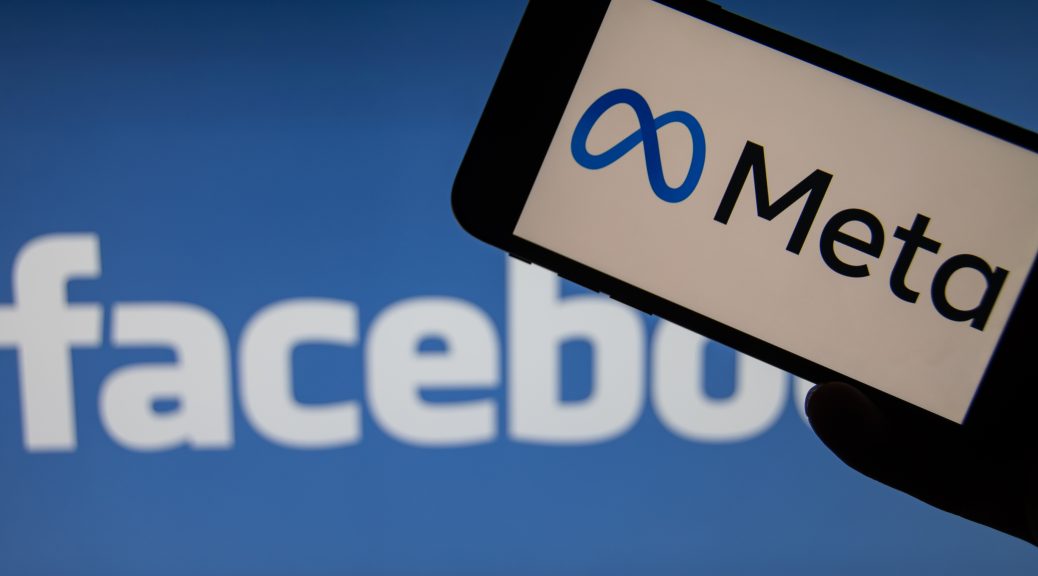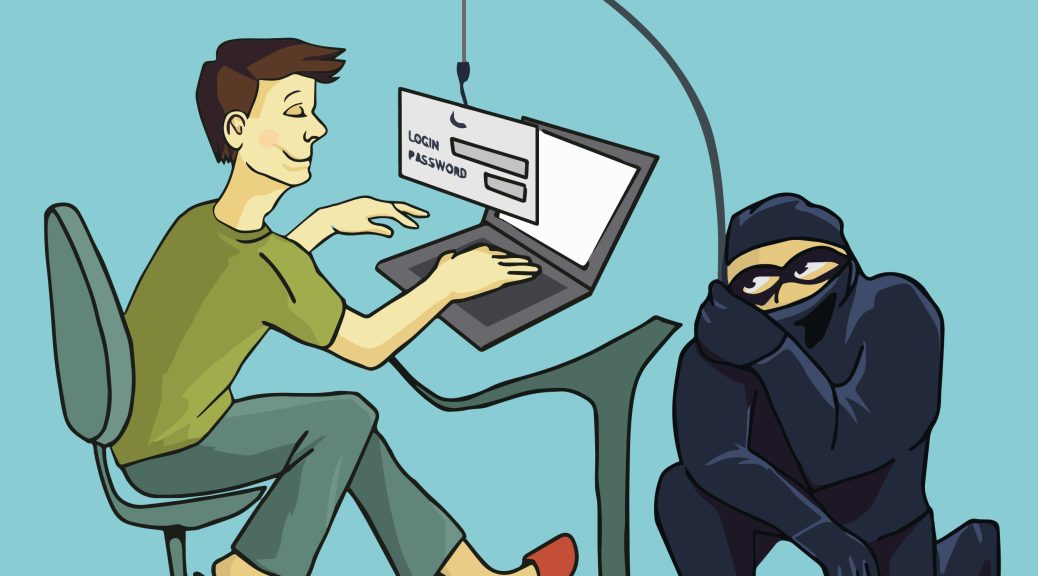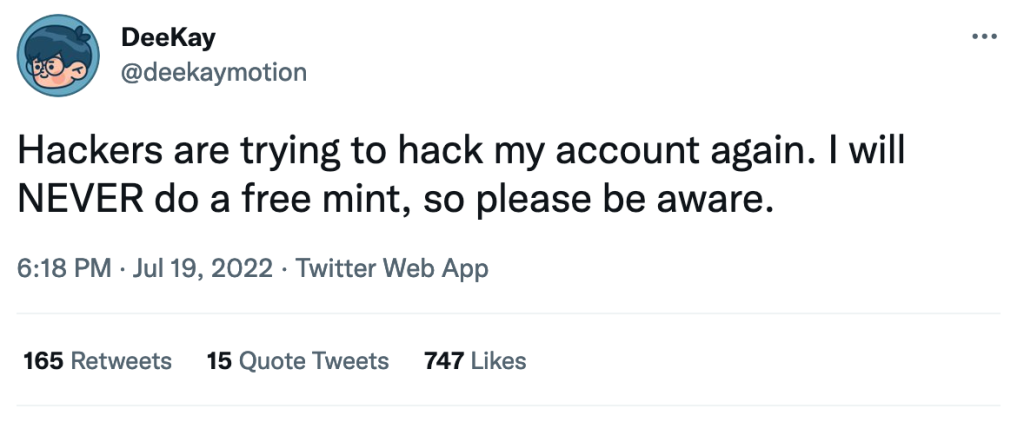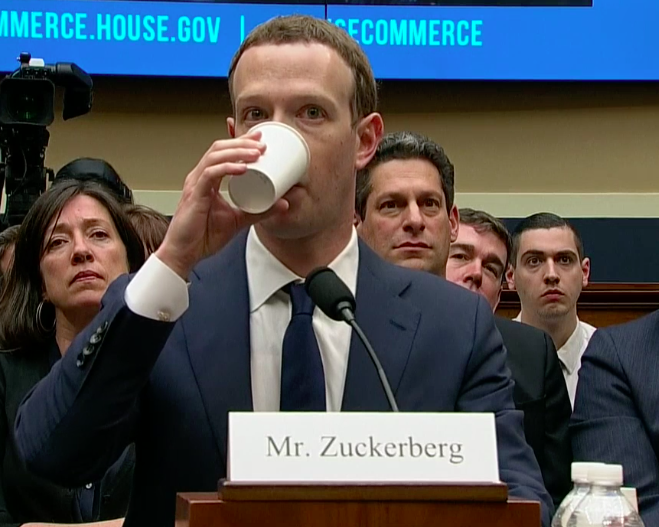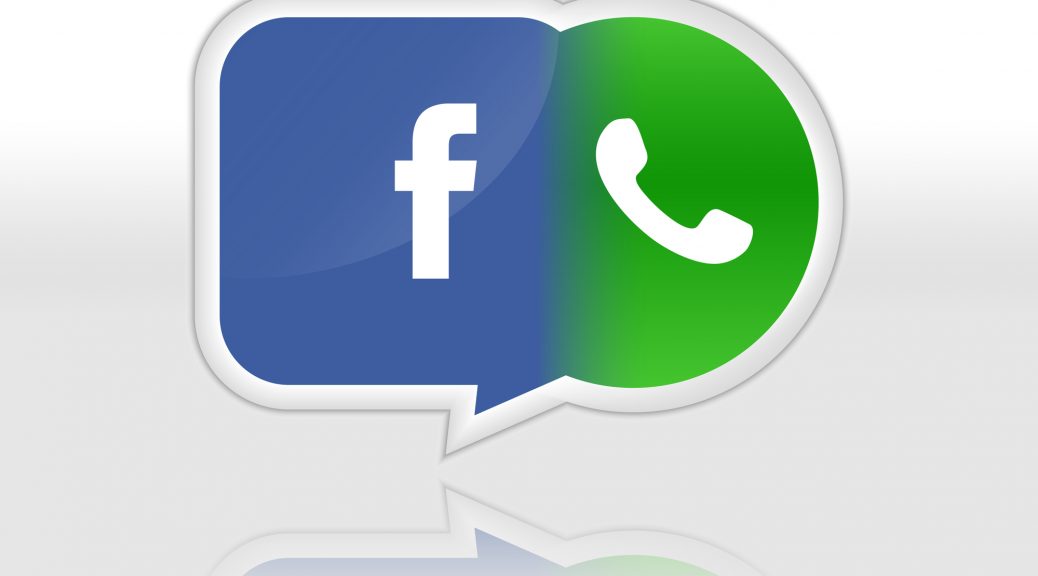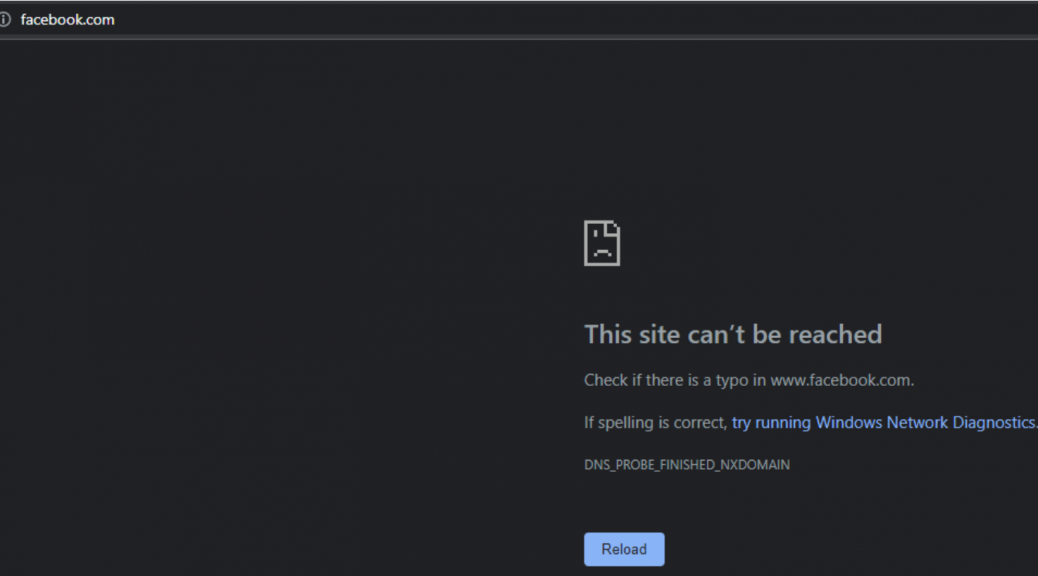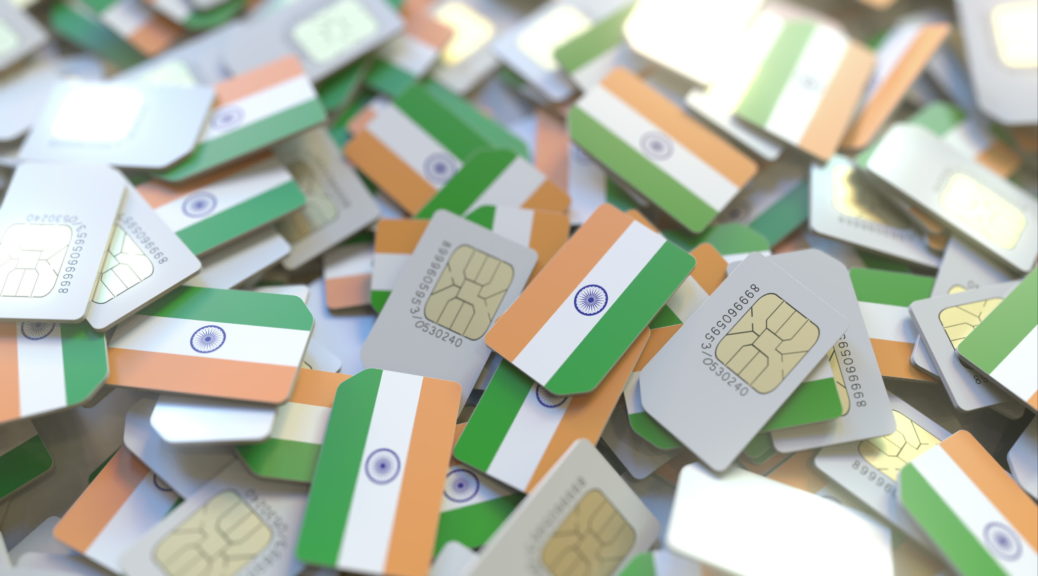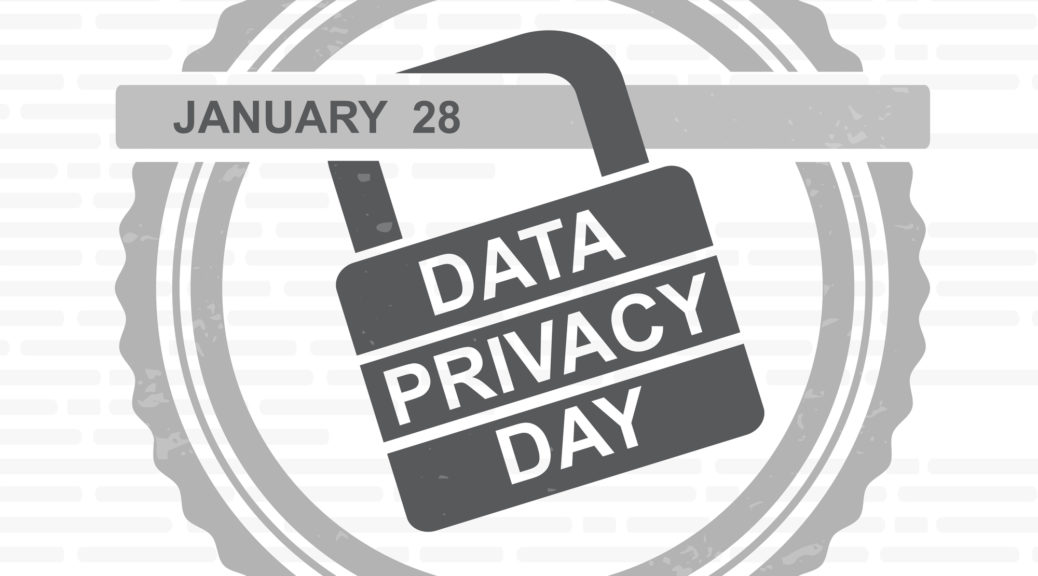On April 19, 2021, arguments will be heard in a 2019 New Delhi action brought by World Phone Internet Services Private Limited, against Facebook, WhatsApp, the Government of India, and the regulator tasked with enforcing Internet telephony regulations in India. World Phone is a licensed Indian provider of Internet telephony services.
India currently holds the honor of having the most Facebook and WhatsApp users worldwide. Specifically, Facebook reached near 400 million users in India several months ago – which accounts for 28.4% of the entire country’s population. And, WhatsApp is well beyond 400 million users given it last publicly disclosed that number three years ago. Indeed, according to the Ministry of Electronics and Information Technology, WhatsApp now has 530 million users in the country.
World Phone’s 2019 Petition alleges that Facebook messenger and WhatsApp are illegal services given they provide Indians with VoIP services without having the requisite underlying licenses or paying the required license fees and service taxes. According to the Petition, licensed providers “have to adhere to various statutory regulations such as Quality of Service Regulations, Tariff Regulations and Consumer Protection Regulations. They also need to ensure emergency services, confidentiality of customer, privacy of communication, undergo regular audits and ensure proper lawful monitoring and interception.” Facebook and WhatsApp comply with none of these regulatory requirements despite providing regulated services.
Moreover, the Petition references the pertinent regulations that provide for “an amount of up to Rs. 50 Crore as penalty for any security breach caused due to any inadvertent inadequacy in the precautions taken by the licensee. If the security breach is caused as a result of a deliberate fault on the part of the licensee, then the penalty is an amount of Rs. 50 Crores for each breach. Besides penalty, criminal proceedings may also be initiated against the licensee. These measures keep the TSPs on their toes and ensure they adhere to the security and privacy requirements while providing Internet Telephony.” Despite breaches that would have triggered these provisions, Facebook and WhatsApp have seen no regulatory enforcement actions filed against them.
World Phone previously filed a similar legal action against Microsoft given its Skype product – India’s then dominant unlicensed VoIP service, caused World Phone harm by improperly competing without a license. That action, however, was filed in the United States. In a decision by Chief Judge Freda Wolfson of the District Court of New Jersey, the action was dismissed in May 2014 with World Phone explicitly directed to seek relief in India. TI Investment Services, LLC, and World Phone Internet Services, Pvt. Ltd v. Microsoft Corporation, 23 F. Supp. 3d 451, 472 (D. N.J. 2014) (“If Plaintiffs wish to renew their suit, they should do so in the jurisdiction where they are alleged to have competed with Defendant, to have complied with regulatory laws, and to have suffered injury, and that is India.”).
World Phone never needed to file suit in India given the subsequent appeal was settled between the parties. Thereafter, Microsoft voluntarily chose to withdrew its unlicensed Skype services in India. See NeoWin (October 6, 2014) (“Skype is either changing, or being forced to change, its strategy in India. The Microsoft service will no longer offer landline and mobile calls for Indian residents starting November 10th. This change came pretty much out of the blue and was announced by Skype on one of their support channels. . . Neither Microsoft nor Skype has offered any reason for this weird change but the company has offered to refund users who will be affected by this announcement.”); PC World (October 6, 2014) (“Skype appears to bow to Indian rules, ends in-country calls to local networks”); SIP Trunking Report (October 6, 2014) (“Some might argue the change has something to do with regulations that actually prohibit the use of VoIP services such as Skype to make calls on phones using the Internet. . . . Since the law does not appear to have changed, some other consideration is at play.”).
In an Affidavit filed on July 20, 2020, there were two arguments made in opposition to World Phone’s application. The first argument was that the Petition could not be decided because it was transferred to the Indian Supreme Court with other petitions involving Facebook and WhatsApp. On its face, this argument made no sense given that the Transfer Order attached to the Affidavit did not list the World Phone Petition so the action was clearly not transferred. Also, the transferred actions solely involve privacy issues. Despite the fact those other matters also demonstrate the “digital colonialism” of Facebook and WhatsApp given they show how Indian users are treated differently from Europeans, they remain inapplicable to the World Phone Petition.
The second argument relied on a 2017 affidavit previously filed that claims the current regulatory body is “currently examining” over-the-top (OTT) services. First, the services subject to the World Phone Petition are Internet telephony services and not mere OTT services. And, despite it now being 2021, the agency still failed to address even the OTT services issues raised. In fact, taking advantage of this longstanding lack of enforcement, WhatsApp is now moving aggressively to take advantage of its Indian market dominance in Internet telephony by moving into the desktop market.
To defend against the World Phone Petition, Facebook and WhatApp hired two of the top attorneys in India – Mukul Rohatgi and Kapil Sibal. Mukul Rohatgi – who is Facebook’s counsel, was in 2010 considered one of India’s top 10 lawyers. He was also the 14th Attorney General for India. Kapil Sibal – who represents WhatsApp, formerly served as the head of various ministries over the years – beginning with the Ministry of Science & Technology, then the Ministry of Human Resource Development followed by the Ministry of Communications & IT, and the Ministry of Law & Justice. To date, neither attorney has formally filed any papers with the Court.
No matter what is eventually filed by Facebook or WhatsApp, World Phone’s argument could not be simpler – there are no “checks and balances” available to protect Indian citizens from the digital colonization of Facebook and WhatsApp so its Petition is likely all that stands between Facebook and WhatsApp executing on its apparent digital colonialization plan and ultimate “data oligarch” control of the Indian population.
If successful, World Phone would cause the cessation of unlicensed Facebook messenger and WhatsApp services in India as well as the imposition of penalties for prior non-compliance. To the extent Facebook chooses not to play regulatory ball, it may end up doing what it has done in China since 2009, namely just go dark.
UPDATE: April 22, 2021
On April 22, 2021, Justice Navin Chawla – the Justice who previously was hearing the World Phone case, ruled against Facebook and WhatsApp and dismissed their pleas challenging an Order from the Competition Commission of India (CCI) directing a probe into WhatsApp’s new privacy policy. Justice Chawla previously reserved judgment on the case.
A new Justice in the World Phone case – Justice Prathiba M. Singh, ruled on April 19, 2021 that Facebook and WhatsApp were required to provide a responsive affidavit within six weeks and World Phone had four weeks thereafter to respond. Moreover, a new hearing date of August 26, 2021 was set by the Court. For the very first time, Facebook and WhatsApp will now be required to articulate a defense to a case that on its face is indefensible.
UPDATE: October 6, 2021
Despite being required to provide their responsive pleadings by May 31, 2021 and retaining some of the top Indian lawyers to defend this action for over eight months, Facebook and WhatsApp both filed their responses on August 20, 2021 – less than a week before the scheduled hearing. World Phone filed its reply to the Facebook submission on August 25, 2021.
On August 26, 2021, Justice Rekha Palli granted World Phone its request for more time to file the WhatsApp response. As well, she scheduled a new hearing for December 6, 2021. On October 7, 2021, World Phone will file its response to the WhatsApp affidavit.
UPDATE: October 7, 2021
World Phone served its WhatsApp response on all parties and with the Court. This Rejoinder provides a detailed analysis of why the Court should stay the use of WhatsApp until in complies with applicable law. To that end, it is anticipated that the Court will grant the requested injunctive relief on December 6, 2021 as to both Respondent No. 3 (Facebook) and Respondent No. 4 (WhatsApp).
Relevant sections of this filed Rejoinder are extracted below.
In 2015 – long before Respondents No. 3 and 4 solidified their current monopoly positions in India, TRAI already recognized Respondents No. 3 and No. 4 were providing the top two mobile phone applications used in India. See Consultation Paper on Regulatory Framework for Over-the-top (OTT) services, para 2.39 at page 27 (27 March 2015) (Publicly available at https://trai.gov.in/sites/default/files/OTT-CP-27032015.pdf).
It is submitted that private monopolistic entities directly impacting the public interest are always subject to writ petitions. Zee Telefilms Ltd. & Anr v. Union of India & Ors., (2005) 4 SCC 649, para 158 (“A body discharging public functions and exercising monopoly power would also be an authority and, thus, writ may also lie against it.”) [emphasis added]. Given the strong public interest implicated by this Petition and Respondent No. 4’s exertion of monopoly power, the Petitioner’s writ Petition should proceed against all Respondents – including Respondent No. 4.
The fact that the functionally equivalent Internet Telephony services of an Internet service provider (“ISP”) – an entity required to obtain a Unified License prior to providing such services, are provided by Respondent No. 4 un-hindered and without entering into a Unified License Agreement is well recognized and admitted by all Respondents. Such unlicensed activity is in violation of Section 5 of the Indian Wireless Telegraphy Act, 1933; Sections 4 and 20A of the Indian Telegraph Act, 1885; Section 79 of the Information Technology Act, 2000; and the entire framework of the Telecom Regulatory Authority of India Act, 1997.
It is submitted that all such services provided by Respondents No. 3 and No. 4 in India should be “licensed pursuant to an agreement with the Department of Telecommunications, Government of India (“DoT”)” notwithstanding, considering such services “internet-based ‘over-the-top’ (“OTT”) services”.
It is submitted that the Respondent No. 3 by its own averments states that it provides unlicensed Internet Telephony Service/VoIP Calls. Such Services are provided by the Petitioner by procuring a license from Respondent No. 2 and are governed by the Indian Wireless Telegraphy Act, 1933; the Indian Telegraph Act, 1885; the Information Technology Act, 2000; and the Telecom Regulatory Authority of India Act, 1997.
It is further submitted that this uneven application has allowed Respondents No. 3 and No. 4 to dominate the market completely and totally – also damaging and putting out of business other Internet Telephony service providers who were once viable. This market dominance has not gone unnoticed in the United States where an Amended Complaint was filed on 19 August 2021 by the US Federal Trade Commission.
Respondent No. 4 currently publicly opposes the enforcement of any interception rule. See “What is traceability and why does WhatsApp oppose it?” (Publicly available at https://faq.whatsapp.com/general/security-and-privacy/what-is-traceability-and-why-does-whatsapp-oppose-it) (“Some governments are seeking to force technology companies to find out who sent a particular message on private messaging services. This concept is called “traceability.” . . . WhatsApp is committed to doing all we can to protect the privacy of people’s personal messages, which is why we join others in opposing traceability.”) [emphasis added]. No matter what Respondent No. 4 does or does not do in this regard, it is submitted that the applicable Rules of interception of communication is dwarfed by the applicable financial commitments and vigorous checks and balances required under the Unified License Agreement and associated regulations which Respondent No. 4 should adhere to given the Internet Telephony/VoIP services it provides.
The Hon’ble Supreme Court has recognized that
“it can very well be said that a writ of mandamus can be issued against a private body which is not a State within the meaning of Article 12 of the Constitution and such body is amenable to the jurisdiction under Article 226 of the Constitution and the High Court under Article 226 of the Constitution can exercise judicial review of the action challenged by a party. But there must be a public law element and it cannot be exercised to enforce purely private contracts entered into between the parties.” Binny Ltd. v. V. Sadasivan, (2005) 6 SCC 657, para 32.
It is submitted that the issues raised in this writ Petition concern existing legislation governing the services provided by the Petitioner and the Respondents No. 3 and No. 4. Wherein the Petitioner is operating through the Unified License Agreement issued by Respondents No. 1 and No. 2, the Respondents No. 3 and No. 4 are providing the same services but circumventing the existing legislation and are completely unregulated/unlicensed. This injustice can only be ruled upon by a Constitutional Court under Article 226 of the Constitution by the Hon’ble High Court and under Article 32 of the Constitution by the Hon’ble Supreme Court of India and not by the TDSAT. Moreover, Petitioner submits that this Hon’ble Court respectfully should not rely on mere recommendations from TRAI.
It is submitted that rather than simply ignoring applicable laws, other countries have sought to change their existing licensing regime. For example, by suggesting that India should not be one of those countries having a licensing scheme for Internet Telephony such as “Korea, Singapore, Hong Kong, Philippines, Thailand, Ecuador, and Mexico”, Microsoft suggested a different approach: “Microsoft respectfully requests that the TRAI propose a regulatory approach wherein PC to PC VoIP requires no license (and is permitted to be transmitted by ISPs over their networks, public or managed, without restriction), and that only two-way PC to PSTN calling (both inside and outside of India) requires a light-touch registration or minimal licensing obligation, accompanied by appropriate regulations deemed necessary to protect consumers or address a market failure.” Response To Telecom Regulatory Authority of India Consultation Paper, Microsoft Corporation India Private Limited, page 14 (September 2016) (Publicly available at https://www.trai.gov.in/sites/default/files/201609060217157734124Microsoft_Corporation_India_Private_Limited.pdf).
Reliance JIO, suggested: “The unrestricted Internet Telephony by the ISPs/ 0TTs may be allowed only if they migrate to the Unified License with Access services authorization or they offer this service under a commercial arrangement with an existing Access service provider.” Comments of Reliance Jio lnfocomm Limited on the issues raised in the Consultation Paper on Internet Telephony (VOIP) (Consultation Paper No 13/2016 dated 22.06.2016), 5 September 2016, at page 9 (Publicly available at https://www.trai.gov.in/sites/default/files/201609060234264610172RJIO.pdf). Further, Reliance JIO suggested that “[i]t should be the responsibility of the Access Service Provider offering Internet telephony in collaboration with the OTT provider or otherwise to ensure that the international internet telephony calls are terminated in India through a licensed ILDO.” Id. at 13 [emphasis added].
Respondent No. 3’s current business partner, Reliance Jio, realized early on that a special “Facebook exception” was in its best interests. See “Stop illegal routing of internet telephony calls: COAI”, Economic Times (5 May 2016) (“The Cellular Operators Association of India (COAI) has urged the telecom department (DoT) to stop illegal routing of internet telephony calls, warning that a failure to do so would lead to a breach in telco licence conditions, pose security risks and cause sizeable losses to the national exchequer. Newcomer Reliance Jio Infocomm is also a COAI member, but the GSM industry body in its letter said Jio held a divergent view on the matter.”) [emphasis added] (Publicly available at https://economictimes.indiatimes.com/tech/internet/stop-illegal-routing-of-internet-telephony-calls-coai/articleshow/52133359.cms).
Respondent No. 4 claims it is a “mere application provider” rather than Petitioner who is an “access provider”. The submitted statement ignores Petitioner is most certainly both and to provide its Internet Telephony/VoIP services in India, Petitioner has fully complied with the existing applicable licensing regime for such services.
Respondent No. 4 also submits that “the relevant regulatory authorities are seized of the issue and the consultation process is ongoing”. The Respondent No. 4 is misleading this Hon’ble Court wherein the reality is that the regulators have already spoken, and they will not do anything further to enforce the law as currently written. TRAI rather recommends that going forward “Market forces” should dictate a solution.
Contrary to what is submitted by Respondent No. 4, there is no need for the creation of a new regime applying to “OTT services” and Petitioner is certainly not requesting the creation of such a new regulatory regime – especially given one is not needed. The Petitioner through this writ Petition is only praying before this Hon’ble Court to enforce the Law/Regulations currently in place.
Respectfully, TRAI has long had an agenda to grow the Internet user base in India. In 2010, TRAI recognized that the uptick in Internet users was below what was sought by it. See Recommendations on Spectrum Management and Licensing Framework, para 2.105 at page 104 (11 May 2010) (“Despite a token licence fee for ISP, the number of internet subscribers has grown from 5.14 million in September 2004 to only 15.24 million by the end of December 2009. Of this, the number of broadband subscribers is 7.83 million. These numbers are way below the target of 40 million and 20 million by the end of 2008 for internet and broadband subscribers respectively.”) (Publicly available at https://trai.gov.in/sites/default/files/FINALRECOMENDATIONS.pdf). To increase the number of Internet users in India, sometime after 2015, TRAI began tilting the scales in favor of OTTs and simply disregarded the current licensing regime when making recommendations. These efforts have been very successful as shown by the hundreds of millions of customers Respondents No. 3 and No. 4 have accumulated since 2015.
Without referencing the applicable laws and regulations, TRAI recently concluded: “It is not an opportune moment to recommend a comprehensive regulatory framework for various aspects of services referred to as OTT services, beyond the extant laws and regulations prescribed presently. It may be looked into afresh when more clarity emerges in international jurisdictions particularly the study undertaken by ITU.” TRAI Press Release Regarding Recommendations on “Regulatory Framework for Over-the-top (OTT) communication services” (14 September 2020) [emphasis added] (Publicly available at https://trai.gov.in/sites/default/files/PR_No.69of2020.pdf). See also TRAI Recommendations on Regulatory Framework for Over-The-Top (OTT) Communication Services, para 2.4(iii) at page 8 (“Since, ITU deliberations are also at study level, therefore conclusions may not be drawn regarding the regulatory framework of OTT services. However, in future, a framework may emerge regarding cooperation between OTT providers and telecom operators. The Department of Telecommunications (DoT) and Telecom Regulatory Authority of India (TRAI) are also actively participating in the ongoing deliberations in ITU on this issue. Based on the outcome of ITU deliberations DoT and TRAI may take appropriate consultations in future.”) [emphasis added] (Publicly available at https://trai.gov.in/sites/default/files/Recommendation_14092020_0.pdf).
The international ITU body, however, previously made it clear that it is not involving itself in India’s internal regulatory matters and is merely a spectator to such activities. See ITU Economic Impact of OTTs Technical Report 2017, 5.2 India at 33 (“India is in the process of reassessing its rules on online services, including OTT services. . . . As noted in Section 4.2, voice and messaging services are permitted to be offered only by firms that hold a licence. Internet Protocol (IP) based voice and messaging services can also be offered by licensed network operators as unrestricted Internet Telephony Services; however, these services may not interconnect with traditional switched services. The dichotomy between regulated traditional services and largely unregulated OTT services leads to numerous anomalies.”) [emphasis added] (Publicly available at https://www.itu.int/dms_pub/itu-t/opb/tut/T-TUT-ECOPO-2017-PDF-E.pdf).
As for the local ITU branch – the ITU-APT Foundation of India, that group has already sided with Respondent No. 4’s claim there is an “intelligible differentia” between its Internet Telephony services and Petitioner’s Internet Telephony services. ITU-APT Foundation of India comments on TRAI OTT consultation (7 January 2019) at 3 (“The Consultation Paper (“CP”) draws parallels between the communication services offered by OTT service providers and TSPs. However, we would like to submit that the services offered by them are widely different and cannot be compared.”) [emphasis added] (Publicly available at https://trai.gov.in/sites/default/files/ITUAPT08012019.pdf).
This position is not surprising given that according to the ITU-APT Foundation of India: “Facebook’s, [sic] one of our valued corporate member[sic] announce a major investment in Reliance Jio that would facilitate the ailing telecom Industry. The two companies said that they will work together on some major initiatives that would open up commerce opportunities for people across India.” ITU-APT Weekly News Summary [emphasis added] (Publicly available at https://itu-apt.org/itu-letter.pdf).
Rather than rely on ITU, TRAI should have considered more the deliberations of the Confederation of Indian Industry (CII) – which recognizes that OTT providers are already governed by the present licensing regime. See CII Response to TRAI Consultation Paper on Regulatory Framework for Over-The-Top (OTT) Communication Services at 6 (7 January 2019) (“Any new regulations for TSPs and OTTs should be considered taking into account the respective regulations govern the TSPs and the OTTs under the Telegraph Act, license, TRAI Act and the Information Technology Act. The Authority should consider new future fit frameworks that lightens the regulatory burden and adopts a progressive approach that allows all entities in the eco-system to proliferate and grow – offering maximum benefits to the consumers.”) [emphasis added] (Publicly available at https://trai.gov.in/sites/default/files/ConfederationofIndianIndustry08012019.pdf). CII has long been a major force in advocating what is in the best interest of Indian businesses – and does not care about the interests of US-based monopolies: “The journey began in 1895 when 5 engineering firms, all members of the Bengal Chamber of Commerce and Industry, joined hands to form the Engineering and Iron Trades Association (EITA). . . . Since 1992, through rapid expansion and consolidation, CII has grown to be the most visible business association in India.” [emphasis added] (Publicly available at https://www.cii.in/about_us_History.aspx?enc=ns9fJzmNKJnsoQCyKqUmaQ==).
It is submitted that a comprehensive licensing regime is already in place which covers not only the interception rules, penalties, security issues but also governs the license fees and tariffs and mode to operate among others. It is submitted that the stand of Respondent No. 4 in regards to interception rules and end-to- end encryption claimed to be covered under the IT Act and other rules, which it publicly opposes, is just like crumbs from a pie wherein the Indian Wireless Telegraphy Act, 1933; the Indian Telegraph Act, 1885; the Information Technology Act, 2000; and the Telecom Regulatory Authority of India Act, 1997 provide a complete pie and once it is brought under such laws Respondent No. 4 will have to comply with all the rules and regulations at par with the Petitioner.
Petitioner and Respondent No. 4 are indeed “equals” in that they provide the same Internet Telephony/VoIP service while are treated “unequally” by Respondents No. 1 and No. 2. It is submitted that only the Petitioner is required to comply with the licensing regime applicable for providing such telephony services.
Individual citizens forming a legal entity or juristic person can invoke fundamental rights. It is submitted that the ameliorative relief sought by the Petitioner is issuance of writ by this Hon’ble Court that the applicable laws and regulations are complied with and enforced upon the unregulated/unlicensed Internet Telephony/VoIP Service Provider Respondent No. 4 herein.
It is denied that the issues raised by this Petition are being “considered and decided by DoT and TRAI, the regulatory authorities with the expertise and experience to address such issues.” It has been over five years since the issue of an uneven level playing field was raised with Respondent No. 2 as regards Respondent No. 4.
Petitioner through this writ Petition is praying that the existing laws and regulations are fairly applied and enforced as to all companies no matter how large and powerful they are. It is humbly submitted that if the unlawful conduct uncovered by this writ Petition is not addressed by this Hon’ble Court, Respondent No. 4 will likely forever be left unchecked to do what it likes in India.
It is submitted that on 19 November 2019, the Minister of Home Affairs was asked “whether the Government does Tapping of WhatsApp calls and Messages in the country” and responded without answering the question but implied it was “tapping of WhatsApp calls and messages” by referencing the same interception rule mentioned by Respondent No. 4 in its submission. “Government Of India, Ministry Of Home Affairs, Lok Sabha, Unstarred Question No: 351” (Publicly available at http://loksabhaph.nic.in/Questions/QResult15.aspx?qref=6696&lsno=17). The Hon’ble Court has no way of knowing if Respondent No. 4 is helping law enforcement, exactly how Respondent No. 4 is helping law enforcement, or whether Respondent No. 4 could do more to help.
Whether or not Respondent No. 4 is consistent with its public pronouncements and does not actually access user accounts is actually of little importance – than that the Respondent No. 4 admittedly does not comply with the licensing requirements applicable to providers of Internet Telephony/VoIP services.
It is denied that there is no financial loss to the national exchequer despite the complete failure to obtain any entry fee, payment of license fee, or goods and service tax from India’s largest operator of Internet Telephony services. A loss of income naturally results when licensing fees are not paid. See Cellular Operators Association of India (COAI) Counter Comments TRAI Consultation Paper on Internet Telephony Released, 22 July 2016, at 1 (“Internet Telephony provided by unlicensed entities besides being in violation of license will not only deprive the licensed operators of huge revenue but will also result in lesser payout to exchequer in the form of reduced license fee on revenues.”) [emphasis added] (Publicly available at https://www.trai.gov.in/sites/default/files/201609161151061091227COAI.pdf).
It is denied that Respondent No. 4’s unregulated conduct actually “generates more revenue for the government by enhancing investments in data networks, and consequent increases in license fees.” [emphasis added]. Even the ITU-APT Foundation of India acknowledges that the infrastructure growth created by OTT providers happens in the USA and not in India. See ITU-APT Foundation of India comments on TRAI OTT consultation (7 January 2019) at 5 (“It is estimated that OTT investments in infrastructure is fast growing, and the bigger OTT players invested 9% of their 2011-2013 revenues in networks and facilities in the US. This trend can be replicated in India with the right regulatory environment which would recognize and incentivize greater investments rather than stifle the industry with arbitrarily applicable licenses.”) [emphasis added] (Publicly available at https://trai.gov.in/sites/default/files/ITUAPT08012019.pdf). Both the ITU-APT Foundation of India and Respondent No. 4 are wrong, however, given that Respondent No. 2’s failure to enforce existing laws has already created the “right regulatory environment” for the bigger OTT players. It is also clear neither Respondent No. 3 nor Respondent No. 4 have any intentions of building networks or facilities in India given they have withdrawn their prior physical presence in India and currently neither even have any office in India.
It is submitted that the question is not whether a licensing regime should apply to OTT’s when the existing regime already does apply, but the real question is whether the existing laws and regulations will be regulated and enforced by Respondents No. 1 and No. 2.
It is submitted that the contents of this Petition seeks liberty of the Court to enforce the laws as written. It is denied that the Petitioner is seeking from the Hon’ble Court to “displace” regulatory authorities but only to enforce existing law and regulations which are applicable to all providers of Internet Telephony/VoIP services, even those who claim to ride on the telecommunications rails built and maintained by other companies.
It is denied that the Respondent No. 4 was singled out in the writ Petition. Unlike Respondent No. 4, other similar service provider like “Skype” have near zero market share compared to Respondents No. 3 and 4. It is submitted that Skype was once the undisputed dominant provider in India but after its corporate parent Microsoft was sued in 2014 by Petitioner, Skype removed the ability to call within India from Skype to mobiles and landlines. In the relevant case, the Hon’ble Court in the United States found that Petitioner was better served filing a writ petition in India rather than in the United States. TI Investment Services, LLC, World Phone World Phone Internet Service Pvt. Ltd. v. Microsoft Corp., 23 F. Supp. 3d 451, 472 (D. N.J. 2014) (“The Courts of India are better positioned to determine whether their own national laws have been violated, and, if so, what the antitrust consequences, if any, are in their national market. If Plaintiffs wish to renew their suit, they should do so in the jurisdiction where they are alleged to have competed with Defendant, to have complied with regulatory laws, and to have suffered injury, and that is India.”).
It is further submitted that unlike Microsoft and even Google, Respondent No. 4 flagrantly violates existing regulatory prohibitions by, for example, allowing Indian users of its free “WhatsApp Business” utilize their landline phone numbers for messaging with customers. See WhatsApp Business App Android Download Page (“You can use WhatsApp Business with a landline (or fixed) phone number and your customers can message you on that number.”) (Publicly available at https://play.google.com/store/apps/details?id=com.whatsapp.w4b&hl=en_IN&gl=IN). As recognized even by TRAI, such unlicensed services run afoul of the existing licensing regime. See Consultation Paper on Regulatory Framework for Over-the-top (OTT) services, para 2.40 at page 28 (27 March 2015) (“Under the current telecom licensing regime, voice and messaging services can be offered only after obtaining a license. Apart from traditional voice and messaging, IP based voice and messaging services can also be offered by TSPs as unrestricted Internet Telephony Services, which are permitted under the scope of the Unified Access Service (UAS) license in terms of the UAS Guidelines dated 14th December 2005. Similar provisions exist for Cellular Mobile Telephone Service (CMTS) and Basic Service Licences. However, the scope of the Internet Services Licence was restricted to Internet Telephony Services without connectivity to Public Switch Telephone Network (PSTN)/Public Land Mobile Network (PLMN) in India.”) [emphasis added] (Publicly available at https://trai.gov.in/sites/default/files/OTT-CP-27032015.pdf).
It is denied that Respondent No. 4 can freely provide telecommunication services and ignore the Unified License Agreement because it relies on networks built by other companies. It is submitted that Respondent No. 4 at one point was building out its physical presence in India for regulatory reasons. By way of background, on 6 April 2018, the Reserve Bank of India issued its Directive, Storage of Payment System Data, requiring that: “All system providers shall ensure that the entire data relating to payment systems operated by them are stored in a system only in India.” Directive on Storage of Payment System Data, 6 April 2018, (Publicly available at https://www.rbi.org.in/scripts/NotificationUser.aspx?Id=11244&Mode=0).
Soon thereafter Respondent No. 4 announced the appointment of Abhijit Bose as head of “WhatsApp India”– WhatsApp’s first full country team outside of California . . . based in Gurgaon.” Respondent No. 4’s company statement is no longer available on its website but press accounts of this statement can still be found online. “WhatsApp appoints Abhijit Bose as head of WhatsApp India”, The Economic Times of India (21 Nov 2018) (Publicly available at https://economictimes.indiatimes.com/tech/internet/whatsapp-appoints-abhijit-bose-as-head-of-whatsapp-india/articleshow/66735848.cms). According to Mr. Bose’s November 2018 statement recounted by the India Times: “WhatsApp can positively impact the lives of hundreds of millions of Indians, allowing them to actively engage and benefit from the new digital economy.” Id. The India Times also reported in that article: “Apart from the traceability request, the government had had asked WhatsApp to set up a local corporate presence. . . .” Id. After finding a way to maneuver around the Reserve Bank of India’s 2018 Directive, on 6 November 2020, Respondent No. 4 announced the launch of its payment platform without having any “local corporate presence” that would store “data related to payments”. See “Send Payments in India with WhatsApp”, WhatsApp Blog (6 November 2020) (Publicly available at https://blog.whatsapp.com/send-payments-in-india-with-whatsapp). As with Respondent No. 3’s massive build out of its physical presence in India, Respondent No. 4’s “company statement” regarding the building of “WhatsApp India’s” physical presence in India is no longer found on Respondent No. 4’s website.
More importantly, as also with Respondent No. 3, Respondent No. 4 now no longer has any physical presence in India – despite the country being Respondent No. 4’s largest country market. And, without Respondent No. 4 having any physical presence in the country, Mr. Bose – still apparently head of “WhatsApp India”, announced in July 2020: “Our collective aim over the next two to three years should be to help low-wage workers and the unorganised, informal economy easily accesses three products – insurance, micro-credit and pensions.” See “Facebook’s WhatsApp to partner with more Indian banks in financial inclusion push”, Reuters Article, (22 July 2020) (Publicly available at https://www.reuters.com/article/us-whatsapp-india-idUSKCN24N24E. It is further submitted that Respondent No. 4 – who already dominants in Internet Telephony, messaging, and mobile payments plans on dominating in providing access to “insurance, micro-credit and pensions”. It is submitted that this blatant form of digital colonialism should respectfully be rejected by way of this present writ Petition
Respondent No. 4 submits it need not comply with the Unified License Agreement despite providing “telecommunication services” simply because it uses for free the networks built by others. The relevant regulatory authorities have been made aware of the matters set forth in the Petition for over five years without enforcing public laws and their own regulations and is why DoT is named as Respondent No. 2 in this matter. Last year alone, Respondent No. 3 generated revenues of more than US$85 billion and profits of more than US$29 billion. These numbers will grow exponentially as the “free” unlicensed products currently offered to Indians become further monetized by Respondents No. 3 and No. 4.
Other than the present writ Petition, there is no available “statutory remedy” that would otherwise cause the enforcement of applicable law. It is respectfully submitted that the Hon’ble Court should intercede to ensure equal protection under the law. It is further humbly submitted that if the Hon’ble Court does not intercede to stop the digital colonialism of Respondents No. 3 and No. 4, the same will go forward unabated. Considering the foregoing facts and circumstances, it is therefore respectfully prayed to this Hon’ble Court to kindly allow the prayer of relief sought by the Petitioner, in the interest of justice, including enjoining Respondent No. 4 from providing Internet Telephony/VoIP services until such time as Respondent No. 4 is in full compliance with the applicable requirements for providing such services in the Union of India.

